13+ Easy-to-Find Star Anise Substitutes
When you buy through our links, The Breslin may earn an affiliate commission. Learn more
These star anise substitutes are surely the guardian angels for your meals if you do not have this one-of-a-kind item on hand or discover it is out of stock while cooking.
Star anise’s taste is so important that you are unlikely to get a genuine taste meal without it. Once added to a dish, star anise imparts a unique flavor that draws attention to itself and balances out particular tastes.
However, it is not always easy to come across star anise on the market. If you have found yourself in this situation, rest assured that you will never reencounter it with my following list of spices you can use in place of star anise.
Drag down to discover which spices have the same warm, sweet, and hearty taste as star anise and how you can substitute them to bring your recipes back to perfection. Trust me! This post will not disappoint you and save your menu!

Understanding Star Anise – The Ingredient You Are Replicating
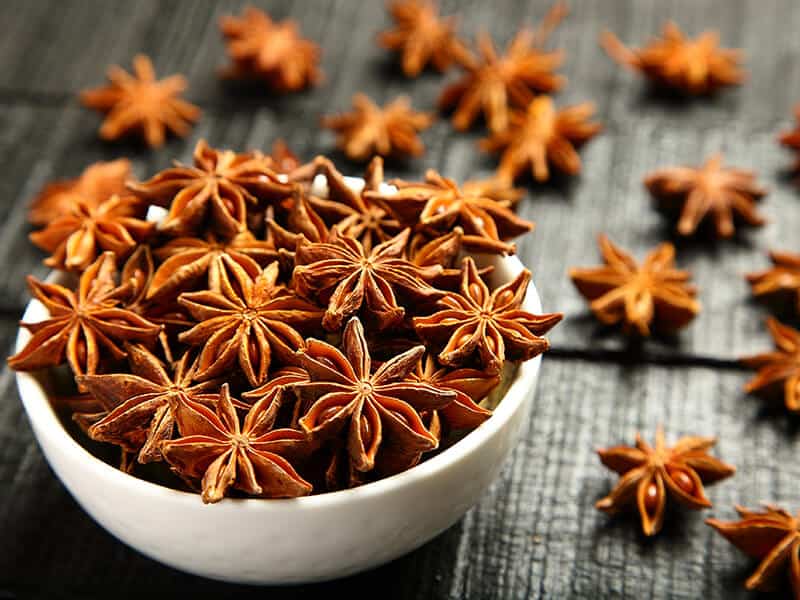
Often referred to as Chinese star anise, the spice derived from an evergreen tree (Illicium verum) found in Southwest China and Northeast Vietnam. It takes about six years for these trees to produce green fruits and up to fifteen years to harvest them.
As the name implies, star anise has a star-like appearance with eight mahogany-colored chambers, each of which carries a pea-sized seed. The fruit is really a schizocarp, with each of its chambers encircled with a small, gleaming seed.
This spice is available whole or ground, each of which is utilized differently. While whole star anise pods provide flavor to various sauces, stews and braised meals are removed after cooking, and their ground version is added to recipes in the same manner as other ground spices.
Star anise is an incredibly essential spice in Chinese cuisine and other nations like Malaysia and Vietnam. If you have been to Vietnam and enjoyed Pho before, then you have tasted this ingredient once, as star anise is common in this renowned beef noodle dish.
Besides enhancing savory recipes, cooks prefer utilizing star anise as a flavoring agent in liqueurs, jams, biscuits, cakes, and other baked products. Plus, the spice makes a great decorative item for your enticing dishes.
Discover Star Anise’s Unique Taste Profile
The top requirement for choosing a spice alternative is to fully understand what you are attempting to replicate. It is no exception with star anise. The fragrance and flavor of star anise are very strong, featuring a nutty and somewhat licorice-like taste profile.
The spice also has a peppery taste and a hint of sweetness in its complex flavor. While the spicy side pairs nicely with stews and broths, its sweet aroma is suitable for cakes and beverages. This contrast in flavor gives star anise incredible cooking versatility.
Due to its pungent flavor and wide applications, it is important to consider the type of dish you are preparing when using it. If you make a light dish like clear soup, do not utilize star anise in excess, as it would overpower other ingredients.
Yet, for something substantial, such as a braised pig or beef brisket, feel free to take advantage of star anise’s spicy and warm notes to elevate your meal’s flavor. In these cases, ground star anise is ideal as it infuses a more intense taste.
Are Star Anise Alternatives Really Essential?
There are a plethora of reasons why people opt for a star anise replacement over the real spice while cooking. One of the most compelling reasons is that star anise is often costly, prompting people with a budget restraint to seek a more inexpensive alternative.
Additionally, it may be difficult to locate in local markets, while the alternatives on this list are simpler to locate and buy. Substitutes for star anise may also be helpful if you run out of the spice and need a fast fix to complete cooking or baking.
For the two reasons above, I highly emphasize the importance of having a few star anise replacements in your cupboard. You will realize their values when star anise is nowhere to be found around your house.
Comprehensive Ratio Guide Between Star Anise And Its Alternatives
It is always effective to get the overall picture of how to substitute your star anise with other ingredients in the correct quantity. The table below will give you the all-in-one-place answer.
Best Star Anise Substitutes To Save Your Dish
Now that you have equipped yourself with all basic understanding about the ingredient whose flavor you are trying to replicate, it is time to move on to the alternative list. The below options guarantee a comparable taste so that you can apply for any recipe calling for star anise.
1. Chinese Five-Spice Powder
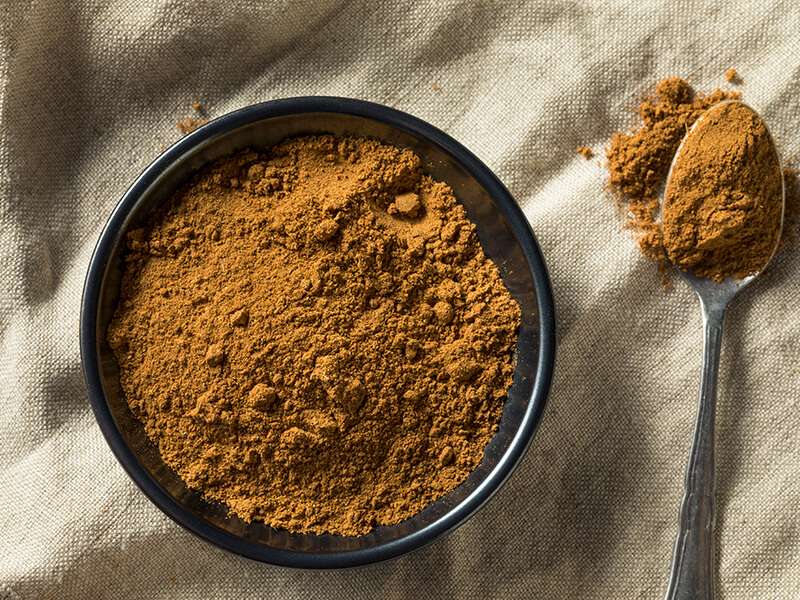
When it comes to substitutes for star anise, Chinese five-spice powder is usually mentioned first since star anise is one of the five spices used to make it. Traditionally, Chinese five-spice is prepared using Szechuan peppercorns, crushed cloves, fennel, cinnamon, and star anise.
Not only is star anise a component of the mix, but it is also the most powerful spice. When you taste the powder, the predominant flavor is star anise, while the other spices play a supporting role. This option will provide a toasty, spicy-sweet taste to your dishes.
Consequently, substituting five-spice powder for star anise may further enhance some recipes by adding many additional spices that pair well with star anise. You can freely generate this excellent alternative right at home with a spice grinder.
It is excellent for braising and roasting fish, poultry, and meat-based meals. A rule of thumb is to use 1 – 1.5 teaspoons of five-spice powder for every 2 teaspoons of ground star anise called for in the recipe.
Learn to generate Chinese five-spice powder right at home to infuse star anise’s flavor to your dishes.
2. Anise Seeds
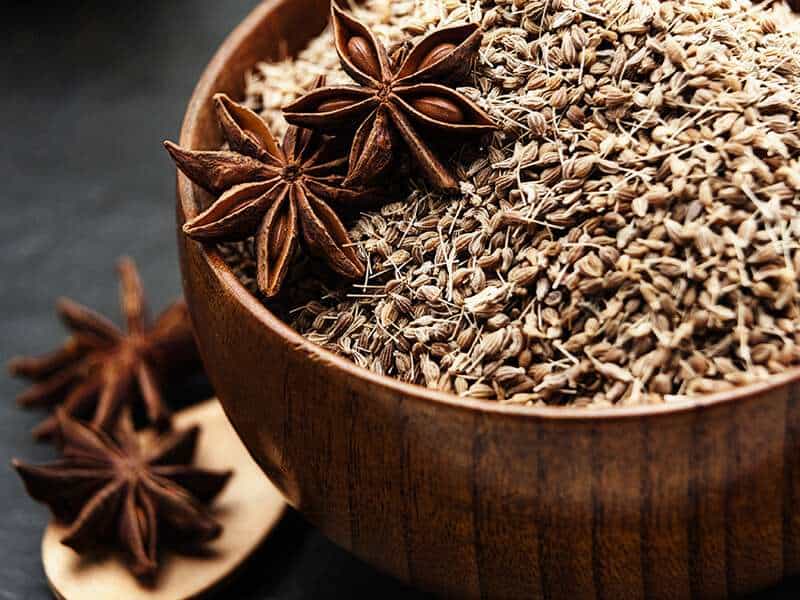
Anise seeds are another cost-effective alternative for star anise. Even though both materials include the word “anise” in the names, they are completely unrelated. Yet, the similar strong licorice aftertaste makes anise seeds a great candidate to watch for.
Anise seeds come from the same-named trees, which are annual herbaceous plants grown for their culinary and medicinal properties under the trade name star anise trees. Anise seeds have a sweet, slightly peppery, and highly fragrant licorice taste.
Due to anise seeds’ sweetness, they are perfect for improving the taste of meals, beverages, and desserts. You may include anise seeds into the baked product’s dough and ground meat before baking or filling.
It is worth noting that star anise has a much stronger taste than anise seeds. Thus, when substituting anise seeds for star anise, utilize the ratio of 1/2 teaspoon of anise seeds in place of 1 full star anise to ensure a good dish.
3. Fennel Seeds
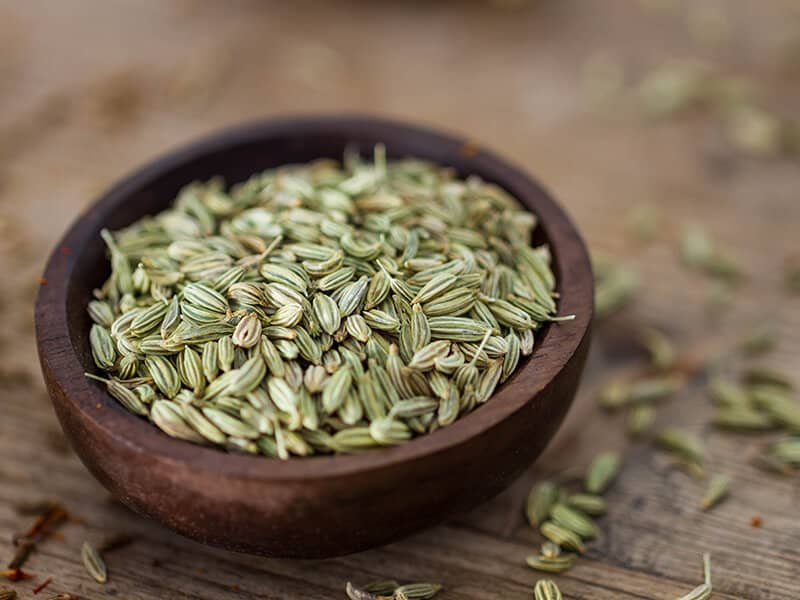
Although fennel seed has a distinct taste from star anise, it may be substituted in a pinch. These seeds are long and slender, with a light green or brown coloration. They provide a sweet, pungent taste reminiscent of licorice, making them an excellent substitute for star anise.
Fennel seeds may be used instead of star anise to flavor salads and dressings. In addition, you can toast this ingredient into carrot soups or creamy pasta. Regardless of your choice, make sure to grind it in the same manner as you would with your star anise.
Consuming fennel seeds brings many health benefits to your body. This spice is minimal in calories and fat content while containing various nutrients such as iron, zinc, and magnesium. Incorporating them into your dishes guarantees to generate a wonderful smell.
The ideal ratio of fennel seeds to star anise is about 1:4, which means for 4 teaspoons of star anise, use 1 teaspoon of fennel seed.
Discover everything about fennel seeds before tossing them into your daily meals!
4. Anise Seeds – Fennel Seeds Mixture
If anise seeds or fennel seeds are ideal for replacing star anise on their own, you can mix them for another potential alternative.
While fennel seeds have a milder taste than anise seeds, they both have the same sweetness. Thus, the combination will have a distinct flavor but will also have a flavor akin to star anise.
Due to the milder flavor, you will need to increase the amount of the combination used. The optimum ratio of star anise to this mixture is 2:3, which means you will use 3 teaspoons of this combination for every 2 teaspoons of star anise.
5. Caraway Seeds
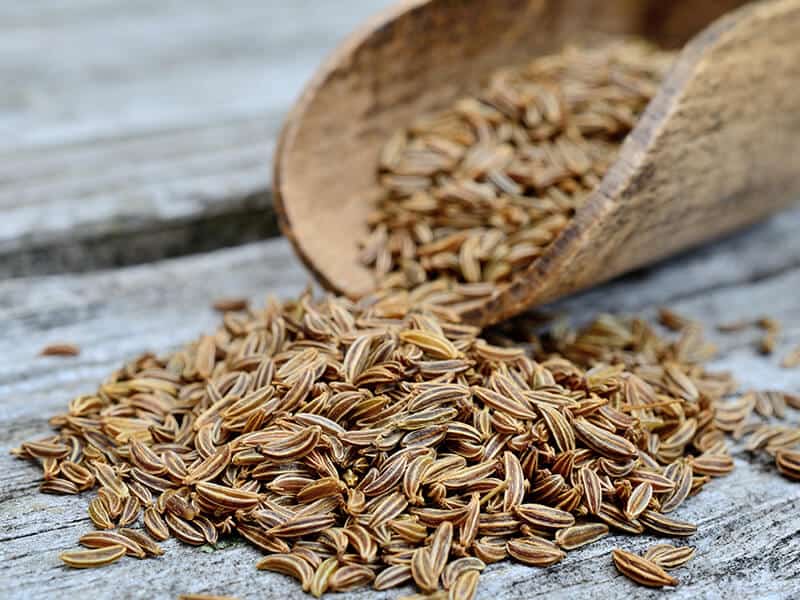
Like star anise and anise seeds, caraway seeds have a distinct licorice taste with a peppery, citrusy undertone. In fact, caraway seeds are the preferred replacement for star anise in the western world.
People love to use caraway seeds as garnishes and flavorings to enhance the tastes of a variety of cuisines, such as meatballs, rye bread, or coleslaw.
Plus, they are ideal for dessert dishes in place of star anise. You can either crush the caraway seeds and include them into the cake mix or soak them in milk to get the sweet taste profile.
Caraway seeds’ flavor is very intense. As a result, you should use them sparingly. The optimal ratio is to use 1/2 teaspoon of caraway seeds in place of 1 teaspoon of star anise.
Furthermore, you can combine caraway seeds with tarragon to provide a stronger licorice flavor for compensating the absence of star anise. The taste of tarragon pairs perfectly with caraway seeds. Therefore, this combination is a match made in heaven for your star anise substitution.
6. Allspice
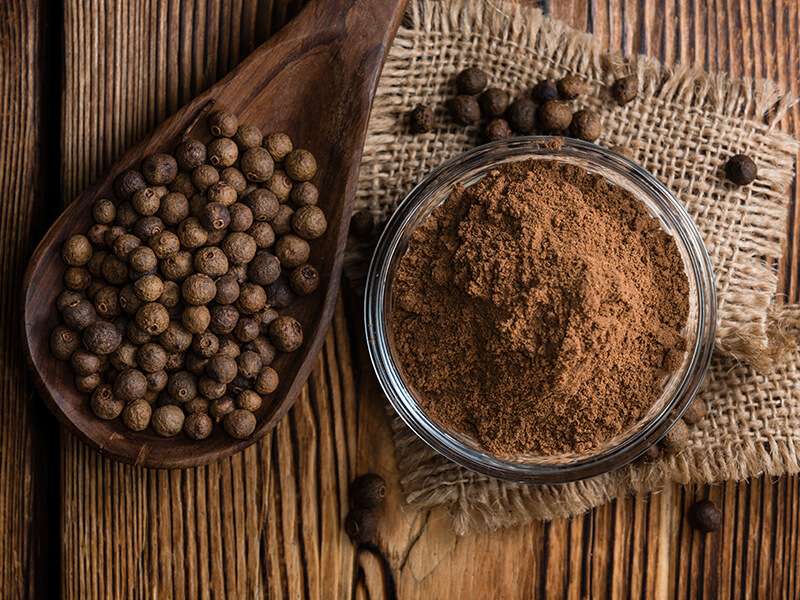
For those unfamiliar with allspice, it is the dried berries of the pimenta dioica plant. It is hugely popular across the globe as a key component in savory meals ranging from meat-based dishes to apple pie, pumpkin, and tomato sauce, as well as sweet drinks.
Despite the absence of licorice tones, allspice is still a brilliant star anise alternative. It imparts sweetness with undertones of clove, nutmeg, and cinnamon to all recipes calling for star anise. Adding a little sugar to allspice helps bring the taste even closer to that of star anise.
All in all, if you love star anise but not the licorice taste, pick allspice as your alternative to removing that flavor from your dishes. For every teaspoon of star anise, use 1/2 teaspoon of allspice for the optimal flavor render.
7. Cassia Bark Powder
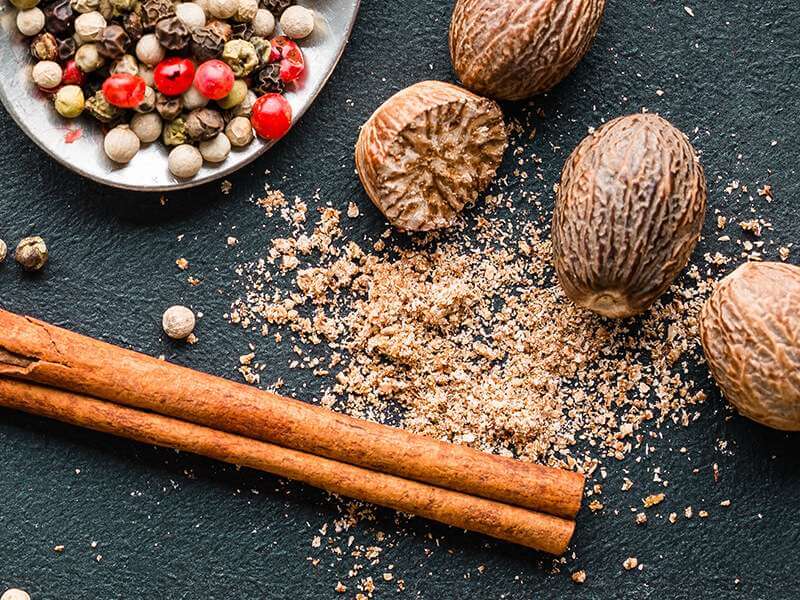
Both whole and ground cassia bark is mainly employed as a flavoring component in confectionery and pastries, owing to its sweet, spicy, and fragrant taste. While this replacement may not have the same flavor depth as star anise, it performs well in substantial meat recipes.
According to the University of Iowa, cassia bark powder has a more straightforwardly intense flavor (2) than cinnamon, with warm overtones, making it an excellent substitute for star anise. Additionally, people utilize cassia bark powder as a stomach tonic and headache alleviator.
To substitute for star anise, use a comparable quantity of cassia bark powder. You may use the recommended substitution in a 1:1 ratio of cassia bark powder to powdered star anise, but you may wish to use slightly less or more depending on the final flavor you want.
Let’s unveil the classic misconception between cinnamon and cassia. Watch this video to know more:
8. Licorice Roots
Caption: Individuals who are pregnant or have a medical condition should avoid using licorice roots unless under the guidance of a physician.
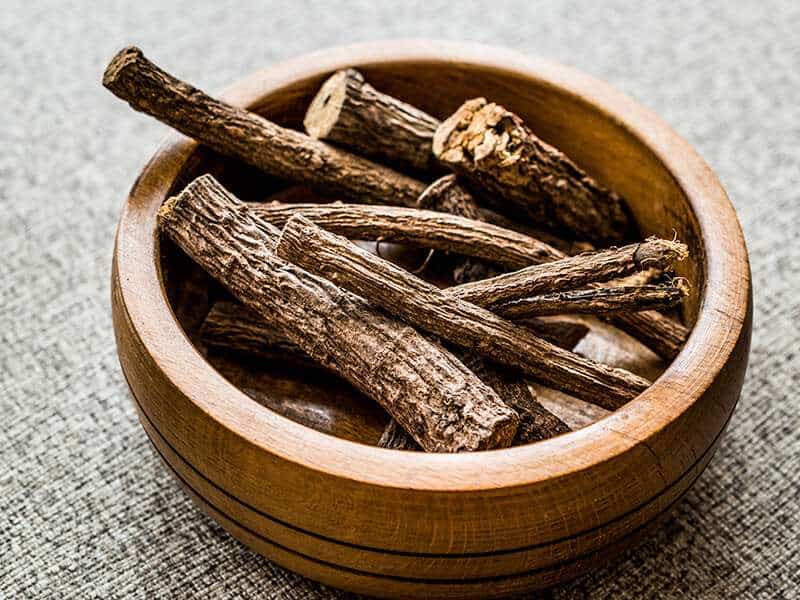
Licorice has probably already been stated a million times in this article. Although this is an exaggeration, it is true that most of these alternatives indeed have the same licorice taste as star anise. And what can be a better option than the genuine licorice roots, right?
So, if you are looking for a way to sweeten your meal, licorice roots are the best deal out there. Notably, the powder forms have become extremely popular in producing sweets and baked products, thanks to their sweetness.
To extract the taste from licorice roots, infuse them in milk, teas, and other liquids. If you are feeling adventurous, experiment using licorice root in stews. The final taste profile may surprise you in a good way!
However, individuals who are pregnant or have a medical condition should avoid using this option unless under the guidance of a physician.
When substituting licorice roots for ground star anise, you may use a 1:1 ratio for both sweet and savory dishes. However, for savory meals, using a bit less is essential.
9. Cloves
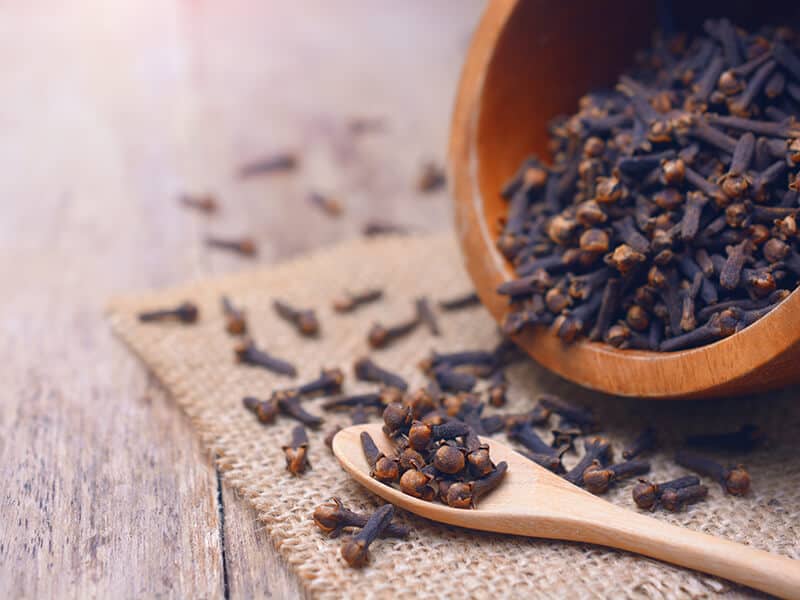
Cloves are dried, unopened flower buds used as a star anise replacement in a variety of dishes. They are harvested when still young and dried. You can apply cloves to recipes in either whole or ground form.
When you consume cloves, whole or ground, your mouth will feel sweet, bitter, and spicy. As with allspice, cloves lack the licorice notes of star anise. Nevertheless, adding some may impart considerable depth and sweetness while retaining the bitter overtones for your dishes.
People prefer utilizing whole or ground cloves to enhance sauces, soups, and rice dishes, mainly Indian cuisines. Besides, cloves are also an excellent replacement for star anise in fruit preserves and compotes.
As with star anise, the bud is steeped intact in your meals and then removed before serving. When cooking with whole cloves, avoid overcooking them since they produce an oil that may impart a bitter flavor to your meal.
For every 2 teaspoons of star anise, use 1 teaspoon of cloves for replacement. This ratio guarantees to render the closet flavor match and retain all their health benefits.
Watch this video to know more:
10. Anise Extract
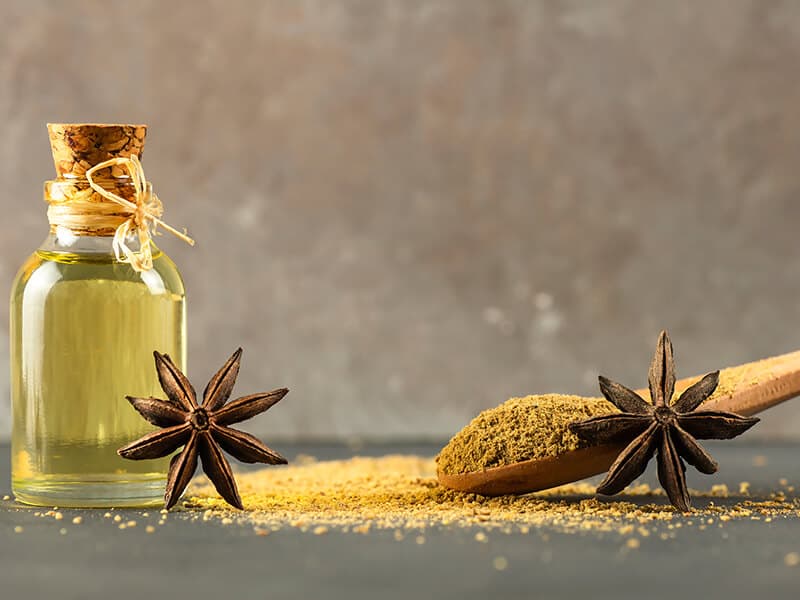
Another option for star anise substitution is anise extract. As the name implies, you achieve anise extract by extracting anise seeds, which means mixing anise oil with water and vodka.
Like star anise, anise extract has a strong and sweet licorice-like flavor. You may purchase anise extract at any grocery store or online retailer. However, you can also extract anise yourself at home in a few simple steps for a nutritious, safe, and inexpensive spice.
Anise extract is popular in a variety of culinary dishes, including bread, biscuits, hot chocolate, and coffee. The optimal anise extract to star anise ratio is 2:1, meaning you should use 2 tablespoons of anise extract to replace 1 tablespoon of star anise.
11. Cinnamon
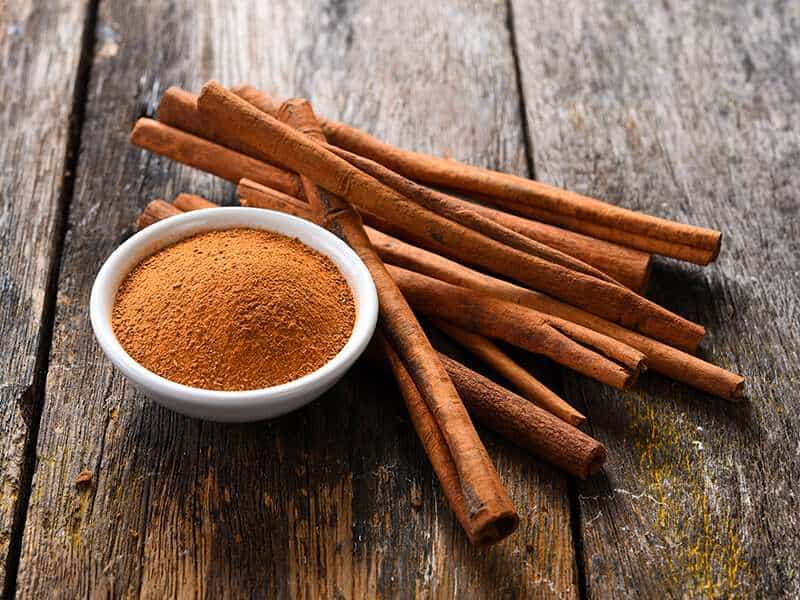
Cinnamon is a spice derived from the inner bark of the Cinnamomum tree, featuring a somewhat lemony taste and sweet, peppery, and woody aroma. The spice blend is brilliant for applying in sweet and savory recipes, including bread, cookies, soups, and meat.
Although cinnamon and star anise may not have identical tastes, it is still an acceptable replacement if you try to fill the star anise gap in a recipe.
If you have cinnamon on hand, make sure to adhere to the following practice: 1 teaspoon of star anise equals 2 teaspoons of cinnamon.
12. Tarragon
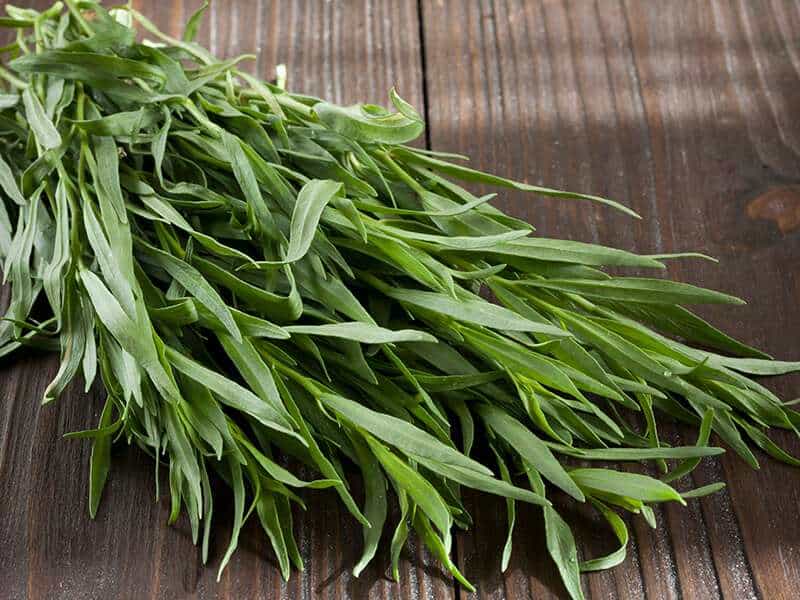
Tarragon is a fragrant leafy, green herb with a complex taste profile of mint, pepper, and eucalyptus. All these tastes are blended in a single delicate and fresh herb used in various meals, including sauces, salads, marinades, and fish.
Thanks to its licorice taste, tarragon fulfills all requirements to become a star anise substitute. The material helps offer new dimensions and depth to your desired dishes. A teaspoon of tarragon is equivalent to 2 teaspoons of star anise.
French tarragon is one of the best-selling herbs for use in the kitchen. Watch this video to know more:
13. Chervil
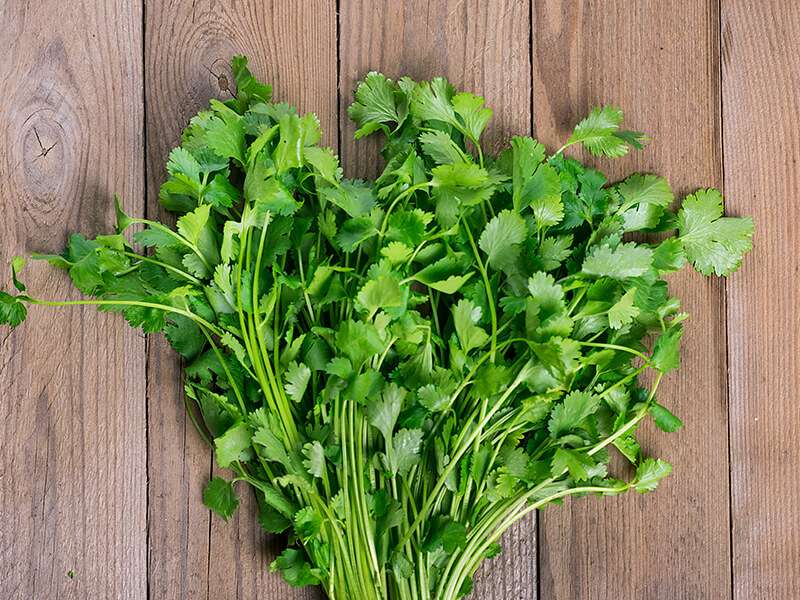
Commonly known as French parsley, chervil is a mainstay in French cuisine. This member of the parsley family resembles parsley but has a more delicate form with smaller leaves. This herb has distinct parsley and tarragon taste with a little touch of licorice.
Like other alternatives in this post, chervil also has a wide range of applications. Yet, the herb works best when seasoning vegetables, fish and making sauces. No matter what you use, always add it towards the end of your cooking process. Otherwise, chervil will lose its flavor.
If you use chervil in lieu of star anise, the taste will be subtly different. Yet, with the correct use of 2 teaspoons of chervil for 1 teaspoon of star anise, you will hardly detect any flavor alteration.
14. Licorice Liqueur
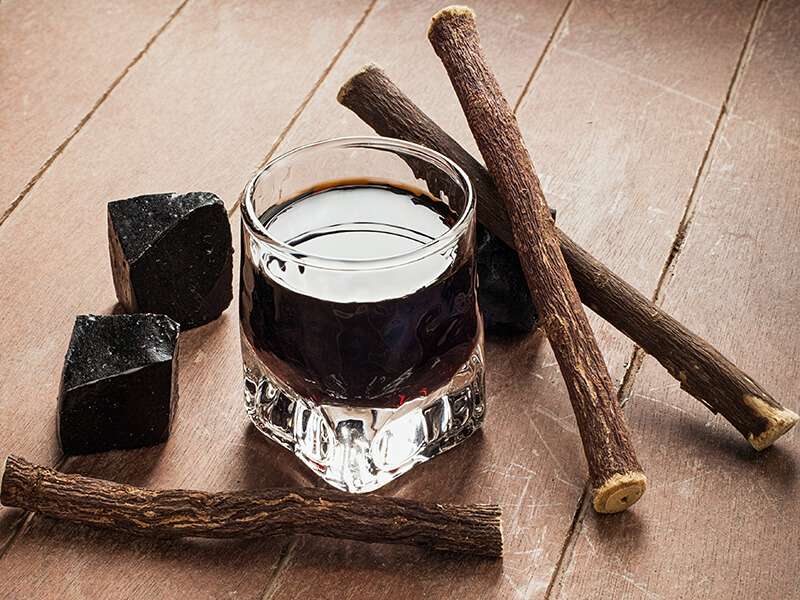
With the component of star anise, anise seeds, licorice roots, hyssop, licorice liqueur possesses a strong resemblance to star anise’s flavor, making it a wonderful substitution for the star-shaped spice.
There are various types of licorice liqueur, and not all of them include tastes reminiscent of star anise. Thus, when shopping, always look for Italian Sambuca and French Pernod. They are the two most common examples of licorice liqueurs with a star anise flavor.
Sambuca is very sweet on its own. When consumed, it warms your tongue and leaves a licorice-like anise taste in your mouth — exactly like star anise. Briefly speaking, it is star anise on a sugar high. Plus, since it is a clear liquid, it will not alter the color of your dish.
Like Sambuca, Pernod is a kind of anisette with a high concentration of sugar. Thus, whenever you use this in place of star anise, be cautious not to consume too much of them.
Regardless of your choice, always replace 1 teaspoon of star anise with 1 to 2 teaspoons of anise-flavored licorice liqueur.
Learn to generate licorice liqueur effortlessly to act as a substitute for star anise.
Fascinating History Of Star Anise
Star anise has a long history, spanning back to over 3,000 years ago when it was utilized in Asia as both a medicinal and a spice. It is native to Southwest China and Northeast Vietnam.
Then, this travelholic ingredient arrived in Europe in the late 16th century by an English sailor from his voyages. Star anise became a popular spice sold along the tea route, which connected China to Russia.
Until now, the material is still popular in China and Vietnam, as the environment of these nations is suitable for its growth. Two utmost criteria supporting star anise development are sunlight and warmth. Thus, you cannot cultivate it in cold areas that lack direct sunlight.
Health Benefits From Consuming Star Anise
As a main culinary spice and a medicinal herb, you have the right to expect how helpful star anise is to your health. Thanks to its rich content of vitamins, minerals, and antioxidants, star anise offers huge benefits that aid in the treatment of various health conditions.
Some obvious health advantages of consuming the star-shaped spice include preventing aging and diabetes, enhancing digestion, alleviating nausea, and cramp relief. Overall, this is a nutritious spice that may help your body function optimally.
The table below features the star anise’s nutritional breakdown (1), so that you can have a more detailed look at what it gives to your body.
FAQs
If there are a few things here and there that you want to learn more about star anise and its replacements, browse through this FAQ section to see if you can find them.
Share Your Experiences In Trying These Substitutes
No matter what star anise substitute you choose, it will never render the exact taste of star anise. With that being said, it will generate the closest match in terms of flavor and texture for your dishes.
These replacements have a similar licorice taste to star anise and may be used to enhance the flavor of both sweet and savory meals. However, if you have never used any of these spices before, start with a little quantity and add more if you prefer.
I hope my compilation brings value and eradicates your stresses when star anise is out of stock. Make sure to leave a comment below to let me know your experiences in trying these substitutions. Thank you for reading!
References
- Nutritionix.com.. Star Anise [online]. Available at: https://www.nutritionix.com/food/star-anise
- The University Of Iowa.. Cassia Cinnamon [online]. Available at: https://iwp.uiowa.edu/silkroutes/cassia-cinnamon

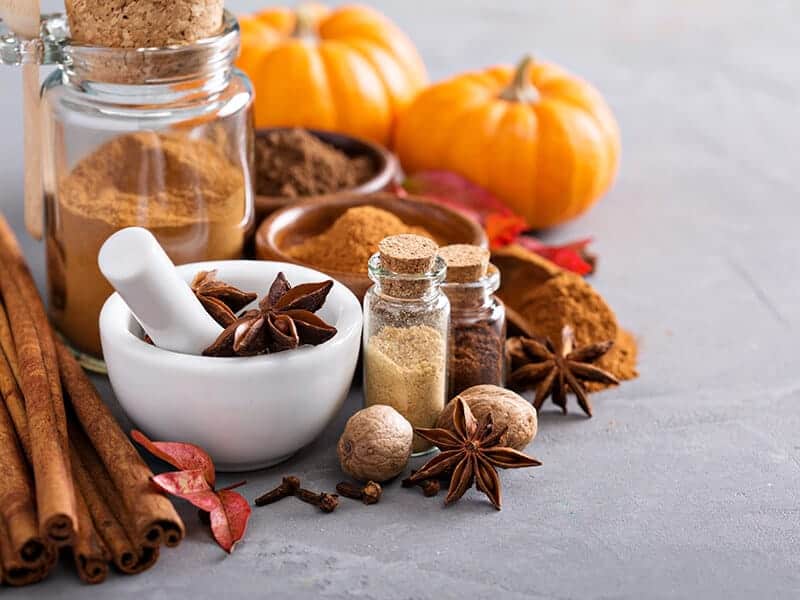

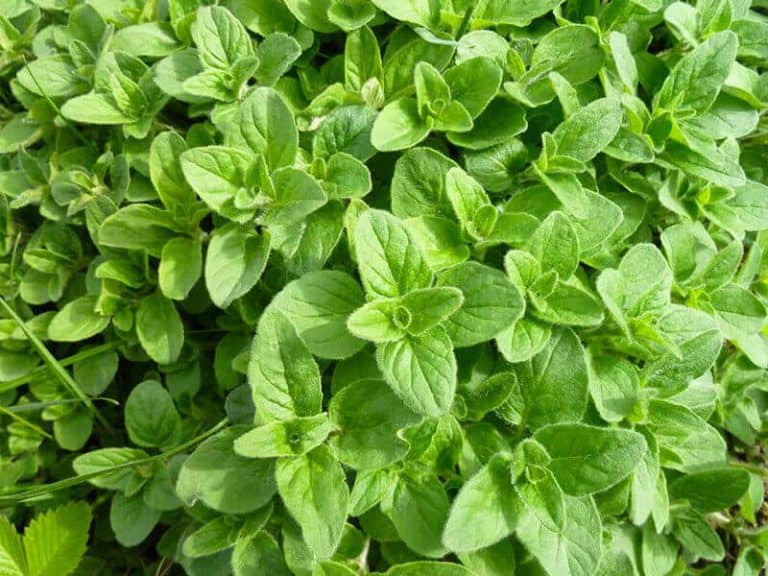



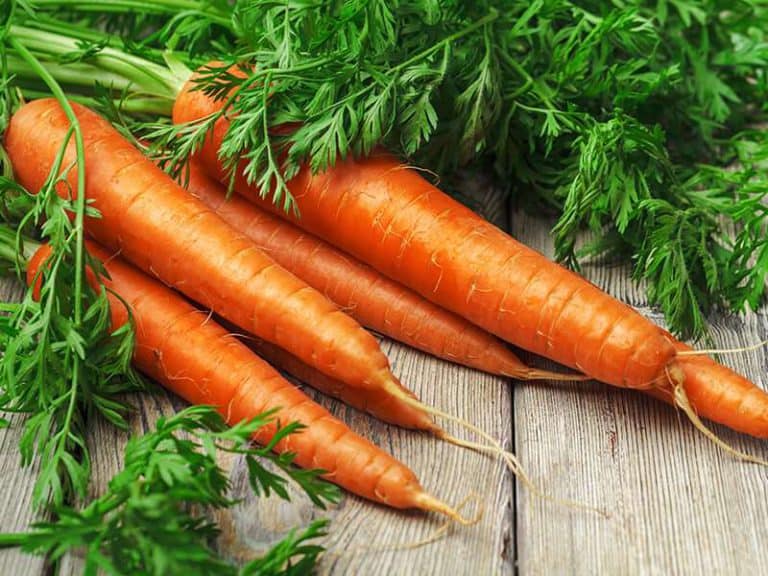
Amanda Collins
Founder and Senior Culinary Editor
Expertise
Culinary Arts and Management, Food Journalism and Critique, Recipe Development and Testing, Global Culinary Traditions, Sustainable Food Practices
Education
Institute of Culinary Education (ICE), New York, NY
Program: Diploma in Culinary Arts
Focus: Intensive hands-on training in culinary techniques, recipe development, and kitchen management, preparing students for professional roles in the culinary industry.
Monroe College, New Rochelle, NY
Program: Associate in Applied Science in Culinary Arts
Focus: Practical culinary skills, including cooking techniques, menu planning, and kitchen operations, with an emphasis on hands-on experience and industry standards.
Amanda Collins is a seasoned chef and food editor with a deep love for global flavors. Trained at the Institute of Culinary Education and Monroe College, and with over 15 years in the culinary field, Amanda has refined her skills in kitchens worldwide. Her background in food studies gives her a unique ability to share both recipes and the cultural stories that shape them.
As senior culinary editor at thebreslin.com, Amanda’s work brings authentic dishes to life, inviting readers to explore new flavors and techniques from around the globe. Her approachable style makes it easy for anyone to bring a bit of the world’s cuisine into their kitchen.